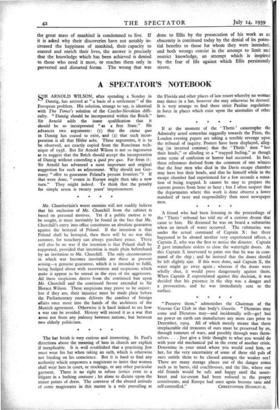Mr. Chamberlain's worst enemies will not readily believe that his
exclusion of Mr. Churchill from the cabinet is based on personal motives. Yet if a public motive is to be sought, it must inevitably be found in the fact that Mr. Churchill's entry into office constitutes an absolute guarantee against the betrayal of Poland. If the intention is that Poland shall be betrayed, then there will be no war this summer, for treachery can always purchase peace. There will also be no war if the intention is that Poland shall be supported, provided that intention is made plain beforehand by an invitation to Mr. Churchill. The only circumstances in which war becomes inevitable are those at present arising—a genuine guarantee, which it is intended to fulfil, being hedged about with reservations and suspicions which make it appear to be unreal in the eyes of the aggressors. All these suspicions derive from the continued ban upon Mr. Churchill and the continued favour extended to Sir Horace Wilson. These suspicions may prove to be unjust: but if they are, their injustice must be made plain before the Parliamentary recess delivers the conduct of foreign affairs once more into the hands of the architects of the Munich agreement. Otherwise it is hard indeed to see how a war can be avoided. History will record it as a war that arose not from any jealousy between nations, but between two elderly politicians.










































 Previous page
Previous page